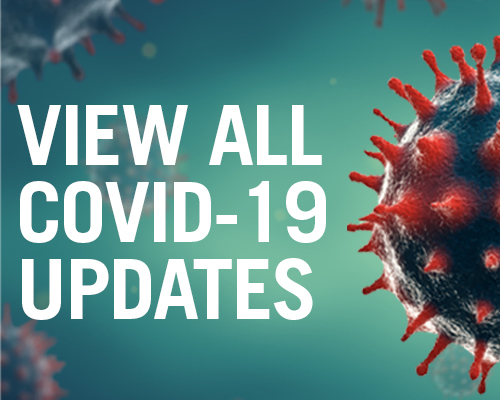COVID-19 Should Not Guide Use of ACE Inhibitors/ARBs, Heart Societies Say
More research is needed, but for now, there’s no evidence that background use of the agents harms or helps in COVID-19.

(UPDATED) If they contract COVID-19, patients who are taking an ACE inhibitor or angiotensin receptor blocker (ARB) should not stop treatment unless told to do so by their doctor, three US medical societies advise.
The guidance was issued today by the presidents of the Heart Failure Society of America (HFSA), the American College of Cardiology (ACC), and the American Heart Association (AHA).

“Are there any data with either favorable or detrimental effects of ACE inhibitors or ARBs or any RAAS [renin-angiotensin-aldosterone system] antagonism in the setting of COVID infection? The answer is no. Are there any data with any adverse outcomes in patients with use of ACE inhibitors or ARBs with cardiovascular disease in the setting of COVID infection? The answer is again no, we don’t have that data,” HFSA President Biykem Bozkurt, MD, PhD (Baylor College of Medicine, Houston, TX), told TCTMD.
“At present time,” she said, “we do not recommend arbitrary or preemptive discontinuation of RAAS antagonists in cardiovascular disease patients who are suspected or confirmed to have COVID-19 beyond the usual standard practice parameters.”
The document—co-authored by Bozkurt, AHA President Robert Harrington, MD (AHA Stanford University, CA), and ACC President Richard Kovacs, MD (Indiana University School of Medicine, Indianapolis)—was issued in response to speculation that background treatment with ACE inhibitors, ARBs, and other renin-angiotensin-aldosterone system (RAAS) antagonists can increase both susceptibility to infection with the novel coronavirus that causes COVID-19 (SARS-CoV-2) and the severity of disease. The virus enters human cells via ACE2 receptors, and animal studies have shown that ACE inhibitors and ARBs upregulate ACE2 expression in the heart, according to the statement.
“Though these have not been shown in human studies, or in the setting of COVID-19, such potential upregulation of ACE2 by ACE inhibitors or ARBs has resulted in a speculation of potential increased risk for COVID-19 infection in patients with background treatment of these medications,” Bozkurt, Kovacs, and Harrington write.
On the flip side, others have posited that RAAS inhibitors might help patients with COVID-19. In experimental studies, the authors note, “both ACE inhibitors and ARBs have been shown to reduce severe lung injury in certain viral pneumonias.”
There are no experimental or clinical data showing that background use of ACE inhibitors and ARBs has a positive or negative impact on COVID-19, however.
“We understand the concern, as it has become clear that people with cardiovascular disease are at much higher risk of serious complications including death from COVID-19,” Harrington said in a press release. “However, we have reviewed the latest research—the evidence does not confirm the need to discontinue ACE inhibitors or ARBs, and we strongly recommend all physicians to consider the individual needs of each patient before making any changes to . . . treatment regimens.”
That guidance is consistent with the recent stances taken by several other medical societies, including Hypertension Canada, the European Society of Cardiology’s Council on Hypertension, and the European Society of Hypertension. The International Society of Hypertension has endorsed the statements of the European societies.
But that doesn’t mean that clinicians should not be using individualized management strategies, “because COVID-infected patients are presenting with a variety of different phenotypes,” Bozkurt said. “Some are with mild symptoms, some with respiratory symptoms, some are much more advanced requiring ventilation and/or ICU care. And in those circumstances, of course, standard care requires us to look at the background therapy and adjust the medications according to their presentation profile. A patient in shock, hypotensive, of course would not be receiving any medication that can potentially reduce the blood pressure in that setting.”
Bozkurt, Kovacs, and Harrington acknowledge that this issue has not been settled, noting: “These theoretical concerns and findings of cardiovascular involvement with COVID-19 deserve much more detailed research, and quickly. As further research and developments related to this issue evolve, we will update these recommendations as needed.”
Bozkurt said additional targeted statements addressing timely questions during this unprecedented event are likely. “Heed advice from the scientific community rather than alternative information resources where there appears to be a lot of augmentation of the fear factor and/or unvalidated and nonscientific concepts. . . . One definitely needs to be aware to seek the right advice from the right resources,” she said.
Todd Neale is the Associate News Editor for TCTMD and a Senior Medical Journalist. He got his start in journalism at …
Read Full BioSources
Bozkurt B, Kovacs R, Harrington B. HFSA/ACC/AHA statement addresses concerns re: using RAAS antagonists in COVID-19. Published and accessed on: March 17, 2020.


Comments